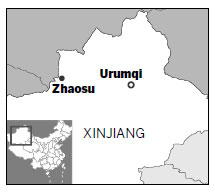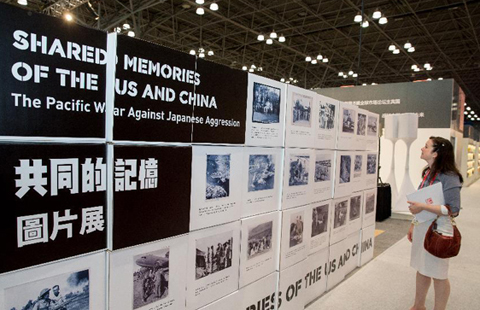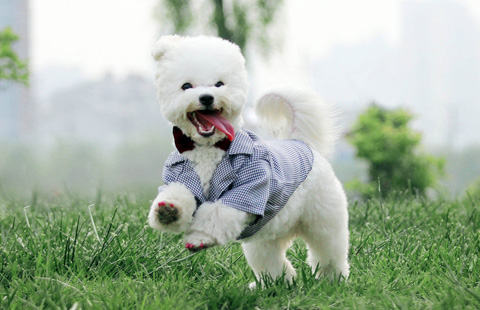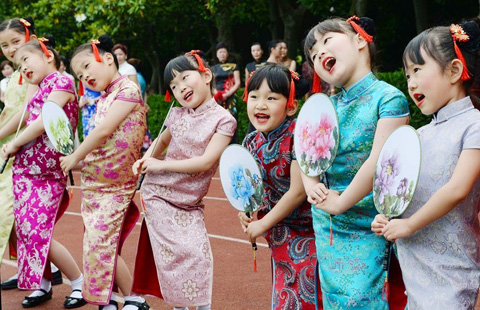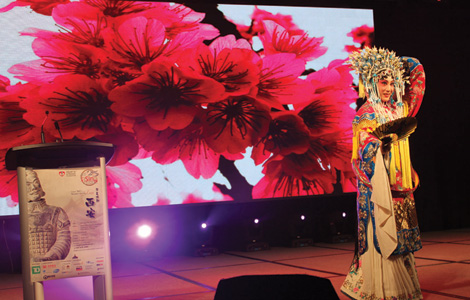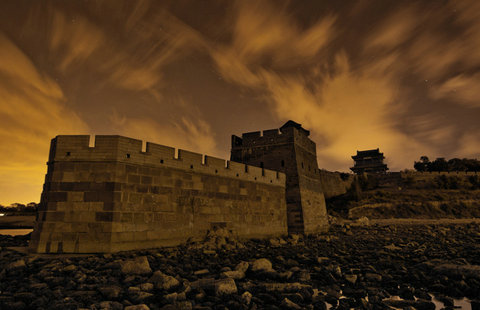All the king's horses
Updated: 2015-05-29 10:50
(China Daily USA)
|
||||||||
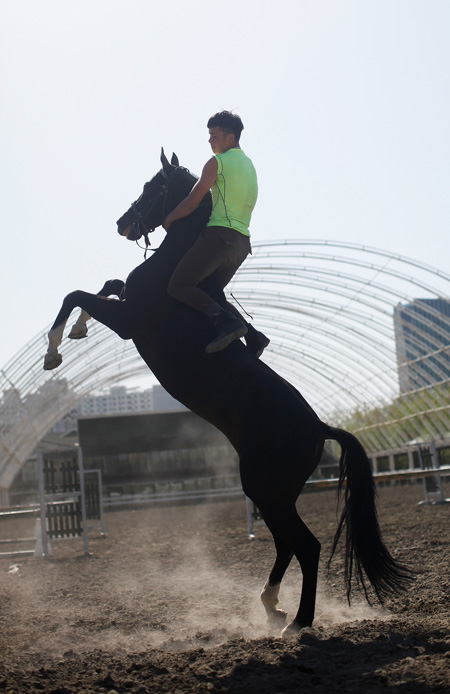 |
|
Ziliya Turgan, a 19-year-old trainer from Zhaosu in the Xinjiang Uygur autonomous region, trains a Ferghana horse in a facility of Yema Group in Urumqi. Provided to China Daily |
Name change
During his reign, Hanwudi invaded what is now Turkmenistan to plunder 3,000 Ferghana horses. He named them "heavenly horses", and renamed Wusun's native breed "Westernmost horses".
Yet, despite the transfer of the name, Zhaosu remains synonymous with both the "heavenly horse" and China's best native equine bloodstock.
In 1982, China officially recognized Ili horses as one of the world's newest breeds. Military horses were sired on the local grasslands until 1980, when developments in transportation meant the People's Liberation Army no longer had a use for them. Until then, the Zhaosu steeds that patrolled the mountainous border area carried official ranks and were awarded medals. They were honored with retirement ceremonies and buried in tombs when they died.
The county was home to 30,000 of the horses when the PLA set up its own stud ranch in 1954. The ranch became a State-owned enterprise in 1980, according to the deputy director, Cepa, who like many Kazaks has only one name.
Today, the fiery horses are used for racing and shepherding, and about 11,000 of them roam the pastures that cover more than 730 square kilometers on the range, one of the largest in China.
"Our goal is to crossbreed Ili's indigenous horses with top-quality imported pedigrees, including British thoroughbreds and Ferghana, to produce better short- and long-distance racers," Cepa said.
Demand has galloped forward neck and neck with the growing popularity of horseracing in China, especially in places such as Shanghai, Guangzhou, the capital of Guangdong province, and Hubei's provincial capital, Wuhan.
About three-quarters of the country's racehorses come from Ili.
"People are demanding better breeding to compete with the elites from around the world," Cepa said.
Bolatjon Hamutm, director of the Zhaosu Husbandry Bureau, said China has given Ili horses as gifts to dignitaries such as the king of Morocco and the president of Kazakhstan.
However, livestock numbers have to be carefully controlled to prevent the animals - sheep, horses and others - from eating all the vegetation and causing desertification across Zhaosu's 6,700 sq km of grassland, he said.
Last year, the area saw its worst drought for 60 years, which left almost three-quarters of the pastureland parched. "The livestock didn't have enough to eat. I've never seen Ili horses so thin," Bolatjon said.
- Half of college students want to work in second-tier cities: Survey
- CPC publishes 'self-decoding' books for Western audience
- Capital aiming for 208 new care centers for the elderly
- Ten photos you don’t wanna miss – May 29
- Guangdong police bust huge 'ice' labs
- Patients take precedence for top researcher
Most Viewed
Editor's Picks

|

|

|

|

|

|
Today's Top News
China's most-wanted fugitive set to be extradited by US
US charges 15 Chinese nationals in college exam fraud scheme
Former US House Speaker Hastert indicted on federal charges
No one tells us what to do, Beijing says
Li: Spain a partner for new market
Foreign policy not foreign: expert
China makes splash at book fair
Brazil ready to collaborate over FIFA graft probe
US Weekly

|

|
